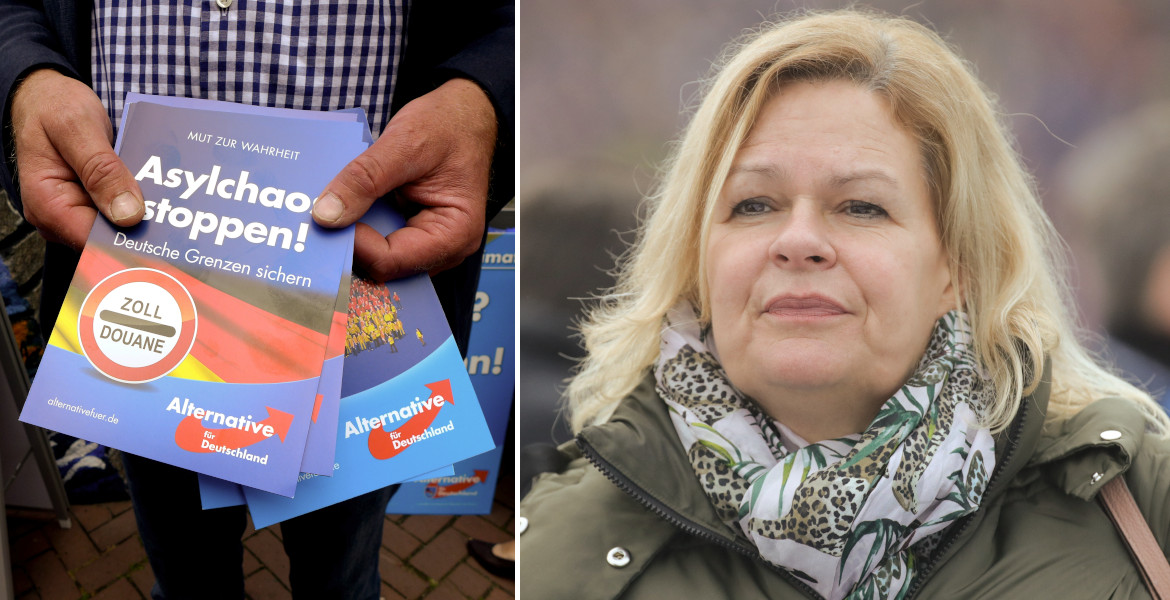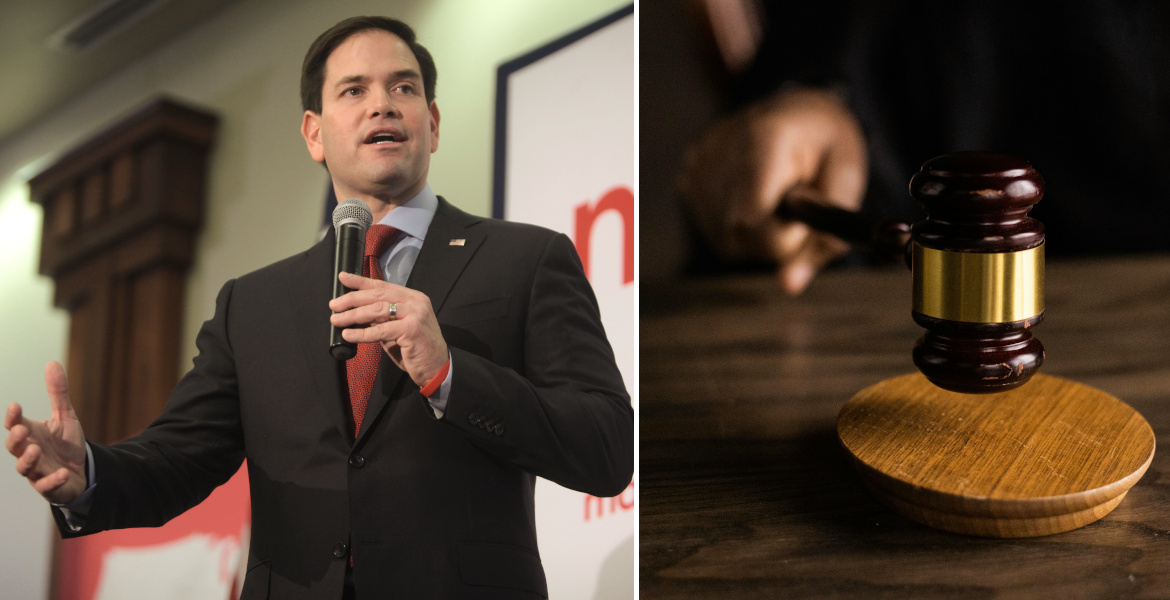German Interior Minister Nancy Faeser on Tuesday unveiled a comprehensive action plan to combat alleged “right-wing extremist” organizations.
The move is linked to the success of the Alternative for Germany (AfD) and growing concern among policymakers that the AfD will gain real influence in several German state governments after the fall elections.
Faeser stresses the need to cut off the funding networks of allegedly far-right organizations and to strengthen the country’s highest court to prevent any outside influence.
A key part of the action plan is for the domestic intelligence agency to share more information about suspected right-wing extremists with local authorities to prevent meetings and gatherings.
Wir wollen bei Rechtsextremisten jeden Stein umdrehen. Diejenigen, die den Staat verhöhnen, müssen es mit einem starken Staat zu tun bekommen. https://t.co/6oKpw9mbrO
— Nancy Faeser (@NancyFaeser) February 13, 2024
At the same time, efforts are being made to strengthen the country’s Supreme Court by incorporating its rules into the constitution. The aim is to counter any influence of the alleged threat, as has happened in the past in other European countries.
– We want to use all the means of the rule of law to protect our democracy, she said, adding that the main goal was to break up the networks of the alleged far right and deprive them of their sources of income and weapons.
The package of measures was presented in cooperation with the heads of the German domestic intelligence service (BfV) and the Federal Criminal Police Office (BKA). The proposed measures include
- A new law allowing the monitoring of financial flows to extremist groups.
- A ban on the possession of weapons by those labeled as right-wing extremists.
- A ban on semi-automatic weapons.
- Easier dismissal of civil servants with “far-right” sympathies.
- An early detection system for foreign-backed botnets that “seek to manipulate free speech.”
AfD strong in polls
Last week, there were widespread protests against the AfD in several German cities. This followed reports of links to alleged ‘neo-Nazi groups’. Discussions about finding ways to repatriate millions of immigrants, including those born in the country, have caused political turmoil in Germany, including within the Scholz government.
Faeser says the widespread demonstrations have given the government “encouragement and a mandate” to act. The interior minister last year described the growth of “right-wing extremism” as the greatest extremist threat in Germany.

In addition to the AfD’s advances, there have also been several incidents of alleged “right-wing extremist threats,” including revelations of networks in the police and armed forces. Of particular note is the incident last year involving alleged plans by the so-called “Reichsbürger” movement to overthrow the German government.
At present, it is not entirely clear how a small cell of about 25 people intended to overthrow the German government and seize power in the country. Something that German intelligence claims was the case.
While the AfD’s popularity appears to have dropped slightly since the protests began, to just under 20%, polls show that many of its supporters are unaffected by the protests. According to recent polls, the AfD has a good chance of winning the most votes in regional elections in three eastern German states this fall, and could receive up to a third of the electoral support there. The party is also the second most popular party in the country, according to the polls.









